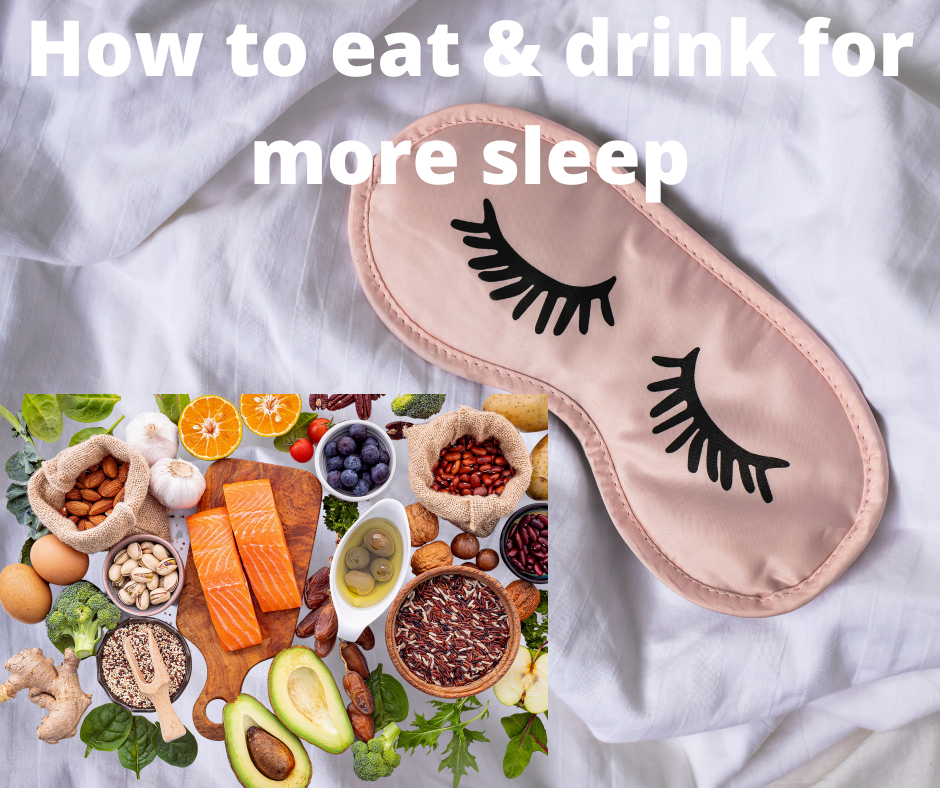Sometimes sleep seems to evade us, we’re really tired, but then get into bed ready for a FAB night of slumber and it just doesn’t happen.
Now we all have times when we’re perhaps overexcited & good thoughts are racing around our heads, or we’re worried about something & can’t sleep. These are good examples of stress & we’ll talk about them another time.
And sometimes our hormones are out of whack, so there’s lots of waking up to pee or you’re boiling hot, freezing cold, or a mixture of both.
Is there anything that you’re doing, or eating or drinking that’s causing the problem, or making it worse?
1.Caffeine – Now we like to use this to ‘wake’ us up, or maybe you just love coffee, or tea (like me). Did you know that it can take at least 7 hours to get rid of it in your body?
Ideally, for optimum sleep you don’t want to be drinking it or consuming it after 2pm.
2. Alcohol- Sorry ladies, but this really does affect sleep quality. One great rule is not to drink every night, but if you’re a regular drinker,try drinking water in between or spritzers. And don’t forget alcohol is just empty calories, so cutting back a little will help you sleep better & help your body.
3. Large heavy meals at dinnertime- this can make you feel overly full & uncomfortable, as your stomach has to cope with slow digesting foods. It also can raise your body temperature, which prevents the natural drop in body temperature needed for sleep.
You may feel full & sleepy after a big meal, but instead of making you sleep better this can increase restlessness during the night.
Also what you eat is important, aim for a well balanced plate of food which has protein, carbs & healthy fats & after eating you should feel 80 percent full.
4.Hunger – don’t go to bed hungry, as research shows eating too little can mean poor sleep. You are more likely to wake up during the night if you severely restrict your food intake.
You can of course still lose weight by being in a calorie restriction, it just means not being severe & limiting too drastically.
5. Meals or liquids before bed ? This is really interesting as research suggests that eating a meal at teatime/dinner time is more effective at promoting better sleep, than having a liquid meal (such as a shake).
6. Eating protein & carbs both promote better sleep at tea/dinner time. However high fat meals have been shown to negatively affect sleep quality.
7.Eating a balance of vitamins & minerals can promote better sleep & improve hormone regulation. Supplement if you aren’t receiving adequate amounts from your diet.
Magnesium, Vitamin D, Tryptophan, Selenium, Potassium, Vitamin B6 & B12
Let me know if you make any of these changes & how it works for you.
Claire x
